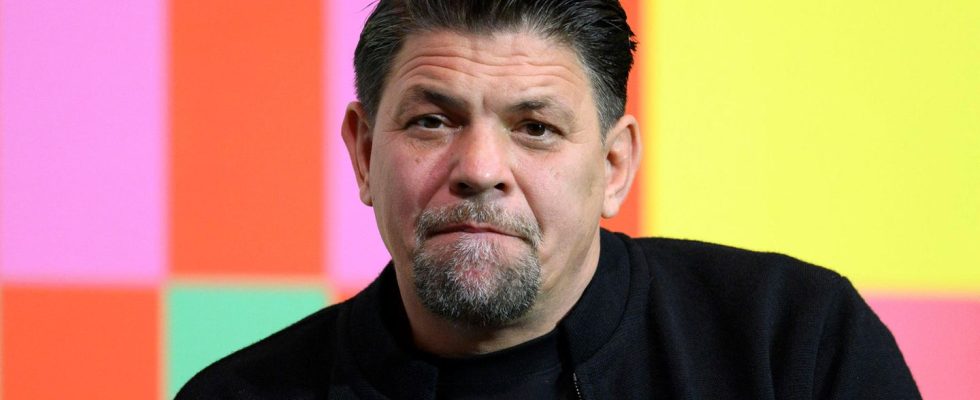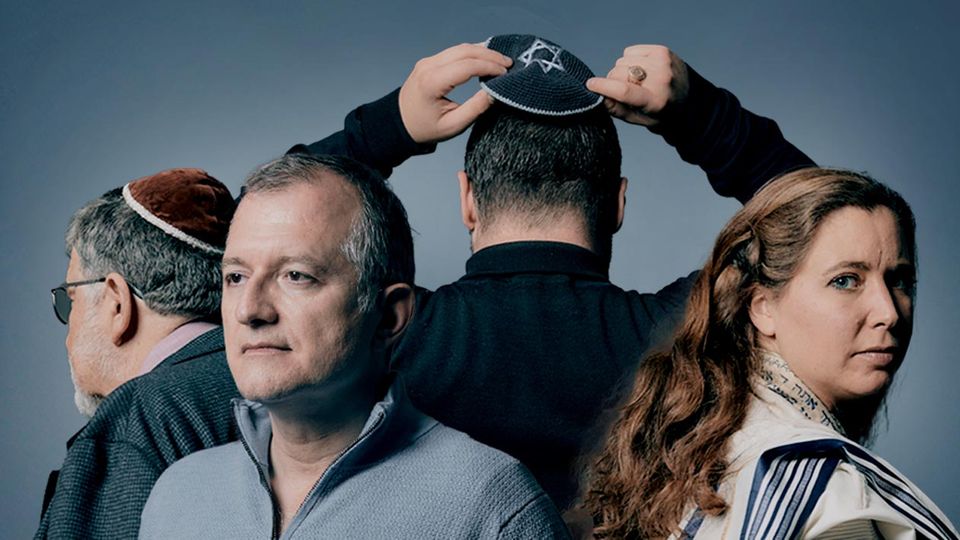“Fiete Gastro” podcast
“I’m afraid of regretting keeping quiet in ten years”: Tim Mälzer no longer wants to accept the growing anti-Semitism
He no longer wants to remain silent: In the new episode of the “Fiete Gastro” podcast, Tim Mälzer addresses the increasing anti-Semitism.
© IMAGO / Panama Pictures
“Silence and Tim Mälzer, they don’t go together at all!” – and that’s exactly why the television chef is talking about anti-Semitism in a new special episode of the “Fiete Gastro” podcast – and has invited prominent guests.
“Fiete Gastro” focuses on TV chef Tim Mälzer and Author Sebastian E. Merget usually focuses on the topics of food, cooking, cuisine and gastronomy. In the new episode of Podcasts However, the duo is now daring to tackle a current, much more serious and, above all, sensitive topic.
“Silence and Tim Mälzer, they don’t go together at all!”
After Hamas’ terrorist attacks on Israel more than six weeks ago, anti-Semitic incidents are increasing in Germany. A serious problem for the star chef. “Anyone who walks through the area with their eyes and ears open cannot ignore a certain development in the last few days, which I would like to describe quite strikingly, with a very present anti-Semitism and a surprisingly quiet reaction to it,” he begins the special episode in which he met two of his close Jewish friends – Samy and Haya Molcho – welcomes. Steffen Hallaschka is also part of the group as a moderator. Mälzer is speechless, he continues, but at the same time he is afraid of not saying anything. This is called “loud silence,” he explains. “Silence and Tim Mälzer don’t go together at all!” notes podcast host Merget.
Helplessness, fear, ignorance – these are all topics that currently concern the TV chef. “I’m afraid of being too quiet now. I’m afraid of regretting silence in ten years, I’m afraid of sitting on the sofa in ten years, ‘Oh if only,'” he tries to describe his emotional state. At the same time, however, he feels like a child of divorce – he has Israeli and Muslim friends and doesn’t know how to behave properly in the current situation.
So he called his girlfriend Haya Molcho, who was born in Tel Aviv and has family in her Israel has. He describes how he wanted to have an exchange with her. “Tim called me, I thought that was so brave. And Tim asked me one sentence: ‘Haya, what can I do?’ And I said, ‘Tim, just by calling me and talking to me about it, you’ve already done a lot,” says Molcho. The restaurateur emphasizes that simply asking about how you feel helps more than anything else at the moment.
Anti-Semitism: About fear, responsibility and ignorance
In the last few weeks she has been feeling more and more fear than she has ever felt in her life. “I’m afraid for my children and my grandchild. I’m afraid that if I perform now, at some big mass, some crazy person might come. I’m afraid! And I didn’t know that,” she says. She – just like her husband – was actually very sheltered and, above all, grew up multiculturally. The star mime looks back: “I grew up with Arabs as neighbors, we played together, we did folk dances, we the Israelis, they the Arabs – that was a given!” However, he has experienced prejudice and anti-Semitic acts against Jews in general again and again in his life – from all sides and all cultures.
The situation now has made the problem visible again. Sees the origin of the clichés and hostility Hallashka On the other hand, in the ongoing fact that “we – and I include myself and Tim – have no contact with Jews at all.” He says: “I have one Jew in my circle of friends, and I don’t even talk to him about Judaism, I just go partying with him!” But it is also a fact that people’s sense of security has now been significantly shaken and is continuing to decline, also because the hatred on the streets is getting louder and louder, he describes. Mälzer sees it that way too. This is precisely why it is important to actively defend the values of a free democracy again. “Perhaps I’m not discussing anti-Semitism right now, but rather the protection of freedom,” said Mälzer.
Like Hallaschka, he also sees a major problem in this regard in the lack of encounter between cultures and the lack of education. “You can’t hate what you know,” said the moderator. Especially against the background of German and Jewish history, one must take responsibility To create places of encounter and education. Molcho agrees: “There is a difference between guilt and responsibility.” Everyone has the latter, not just Germany. “But there is no longer any reason to feel guilty today – not in the third generation.”
Culinary cuisine is an example of encounters and togetherness. Levantine cuisine represents a connecting element between Israeli and Palestinian cultures and has grown over the years through history, explains Molcho. And the same thing has to happen with other areas: not side by side or even against each other, but together.
The entire special episode “Loud Silence” of the “Fiete Gastro” podcast will be available on RTL+ from November 23rd



